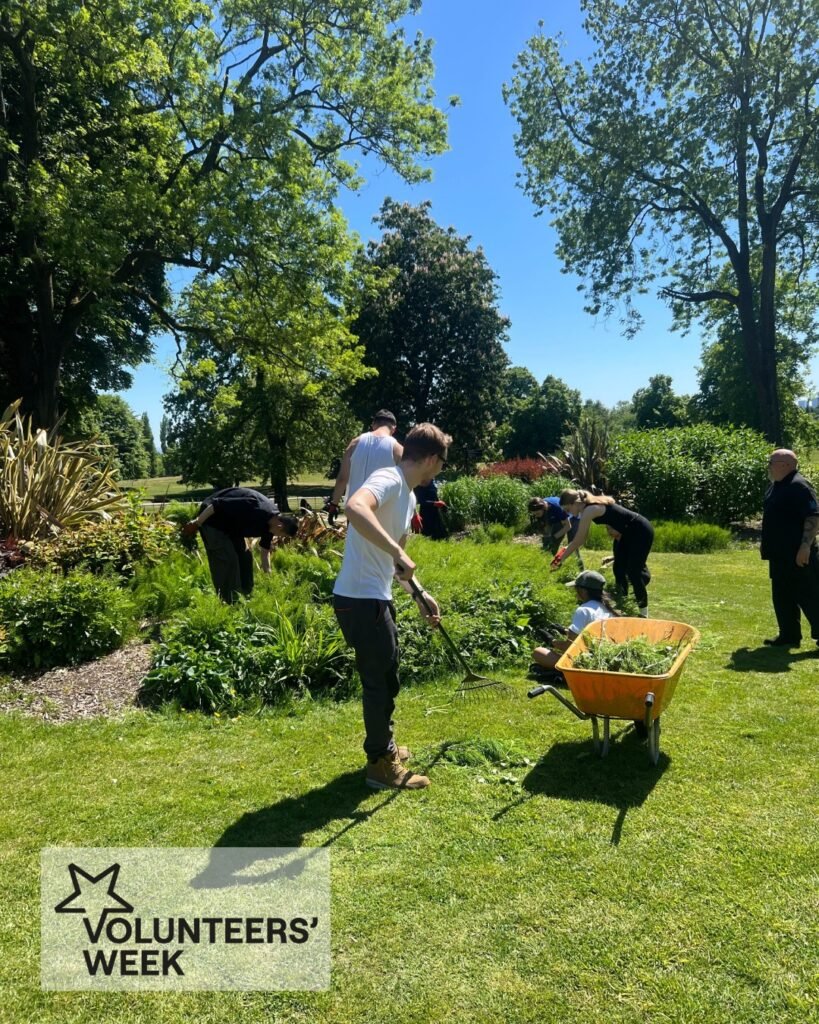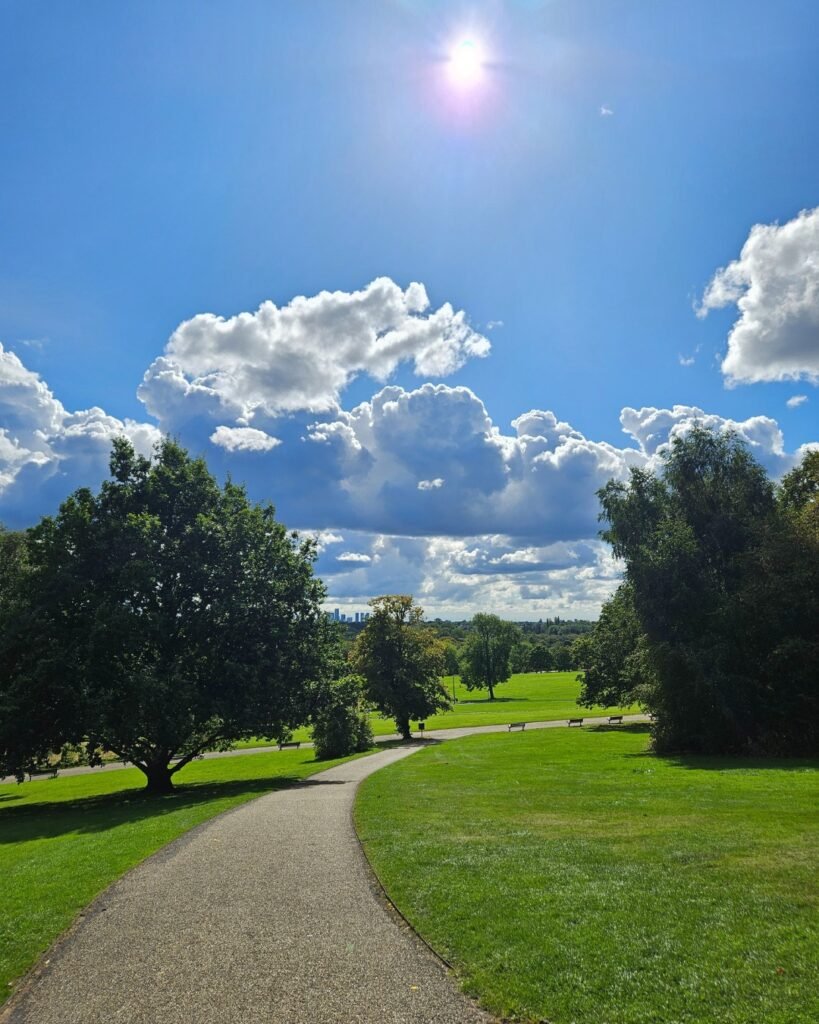Heaton Park, nestled in Prestwich, Greater Manchester, stands tall as one of the largest municipal parks in Europe. Spanning over 600 acres, its roots stretch back to the 18th century with the neoclassical Heaton Hall as its centrepiece. Today, this vast green expanse serves as a cherished space for leisure, community events, and festivals, while the hall itself opens occasionally as a museum and venue for cultural events.
With winding woodlands, a serene boating lake, a golf course, and play areas, Heaton Park is the city’s outdoor playground for all generations. It has consistently been recognised for its natural beauty and has retained its Green Flag status in 2025, an accolade underscoring its environmental excellence and community value.
Oasis Reunion: A Homecoming Like No Other
This summer, Heaton Park transformed from a tranquil escape to the throbbing heart of the UK’s live music scene with the reunion of Manchester icons, Oasis. For the first time in 16 years, Liam and Noel Gallagher reunited, kicking off a string of five sold-out shows in July as part of their worldwide reunion tour.
Set against a backdrop of sun-soaked evenings and highs reaching 31°C, upwards of 300,000 fans descended upon the park, eagerly reliving Britpop’s golden era. The concerts brought a wave of nostalgia, with classic hits like “Wonderwall,” “Live Forever,” and “Don’t Look Back in Anger” echoing across the lush grounds. The city was swept up in “Oasis fever”, with murals springing up and merchandise lining the streets.
Managing the Massive Crowds
The influx of visitors required meticulous planning. Police and local authorities began preparations six months in advance, deploying visible policing and significant resources to ensure safety and manage crowds around Heaton Park and Manchester city centre. Event organisers worked closely with Manchester City Council to upgrade security measures, including the erection of robust fencing and the deployment of more than 2,000 security personnel around the site.
Several incidents, such as the seizure of unauthorised drones and minor disturbances, tested the organisers but ultimately, the events progressed smoothly with minimal disruption. There was, however, a strong emphasis on discouraging ticketless fans from gathering in the park. To protect newly planted woodland and livestock, and to avoid overcrowding, the council introduced steel fencing and restricted access to certain park areas.
Weathering the Heatwave
The concerts coincided with a significant heatwave, prompting health advisories for fans. Event staff and police urged attendees to stay hydrated, use sunscreen, and wear hats. Organisers permitted concert-goers to bring in a sealed bottle of water up to 500ml, with free water stations set up throughout the park to help people cope with temperatures soaring above 30°C.
Transport for Greater Manchester encouraged the use of public transport, particularly trams and dedicated shuttle buses, to reduce congestion. Despite tram closures around Piccadilly, alternative routes were arranged to streamline passenger flow to and from the city centre.

Economic and Community Impact
The series of Oasis gigs have acted as a major economic boost for Manchester, with marked increases in hotel occupancy, local business trade, and hospitality spending. Over the course of the summer, the city is expected to host more than 1.3 million “music tourists,” strengthening its status as a cultural capital.
Manchester City Council revealed plans to reinvest nearly £250,000 from event revenues into supporting grassroots music venues. The Music Venue Trust is set to administer this new funding, aiming to help the city’s smaller venues thrive on the back of Manchester’s “season of music.” There is also an ongoing commitment to reinvest a share of income back into Heaton Park for maintenance and environmental improvements.
Preserving the Park’s Legacy
After the final encore faded, attention shifted to ensuring Heaton Park’s continued wellbeing. Council teams, supported by local volunteers, embarked on an extensive clean-up operation to restore the grounds and re-seed worn areas—especially the newly dubbed “Gallagher Hill,” a gathering spot for fans during the concerts.
This commitment to restoration highlights how major events and long-term conservation can go hand-in-hand. Councillor John Hacking emphasised the importance of balancing Manchester’s vibrant event calendar with the protection of its green spaces, stating that additional safety and conservation measures “regretfully” had to be taken for the welfare of both people and the park’s wildlife.
Heaton Park Beyond the Headlines
Even when not hosting music legends, Heaton Park remains an essential green lung and cultural venue for Manchester. Annual open-air theatre performances, sports activities, children’s playgrounds, and heritage projects keep the community engaged year-round. Its rich historical and cultural tapestry continues to attract visitors from across the UK and beyond.
In 2025, as the park basks in the afterglow of an unforgettable summer, its importance as both a sanctuary and a stage for collective celebration is clearer than ever. Heaton Park, with its rolling lawns and rich heritage, stands as a testament to Manchester’s enduring spirit and its ability to host world-class events while staying rooted in local life and community pride.
Heaton Park as a Community Hub
Beyond its role as an events venue, Heaton Park serves as a focal point for community life. Local schools use the space for sports days and educational field trips. Fitness groups and runners gather for weekly parkrun events, while the Friends of Heaton Park volunteer group regularly organises clean-up days and gardening projects.
The park plays a key role in supporting mental and physical wellbeing for Mancunians. Green spaces are proven to reduce stress and encourage activity; surveys from Manchester City Council show that over 80% of local residents visit the park at least several times a year.
Public Transport and Accessibility
Heaton Park remains one of the best-connected outdoor spaces in Greater Manchester. The Metrolink tram network offers a direct stop at Heaton Park, making access easy from Manchester city centre and surrounding suburbs. Bus routes also serve the park, and upgraded cycle paths encourage active travel.
Conclusion:
Heaton Park continues to evolve, balancing its historic legacy with the needs of a modern, growing city. Whether providing a dramatic backdrop for headline events or simply offering a peaceful retreat, Heaton Park stands as a treasured green space at the heart of Greater Manchester’s community life.
Read More: Manchester United 2025/26 Season: Fixtures and Key Dates

